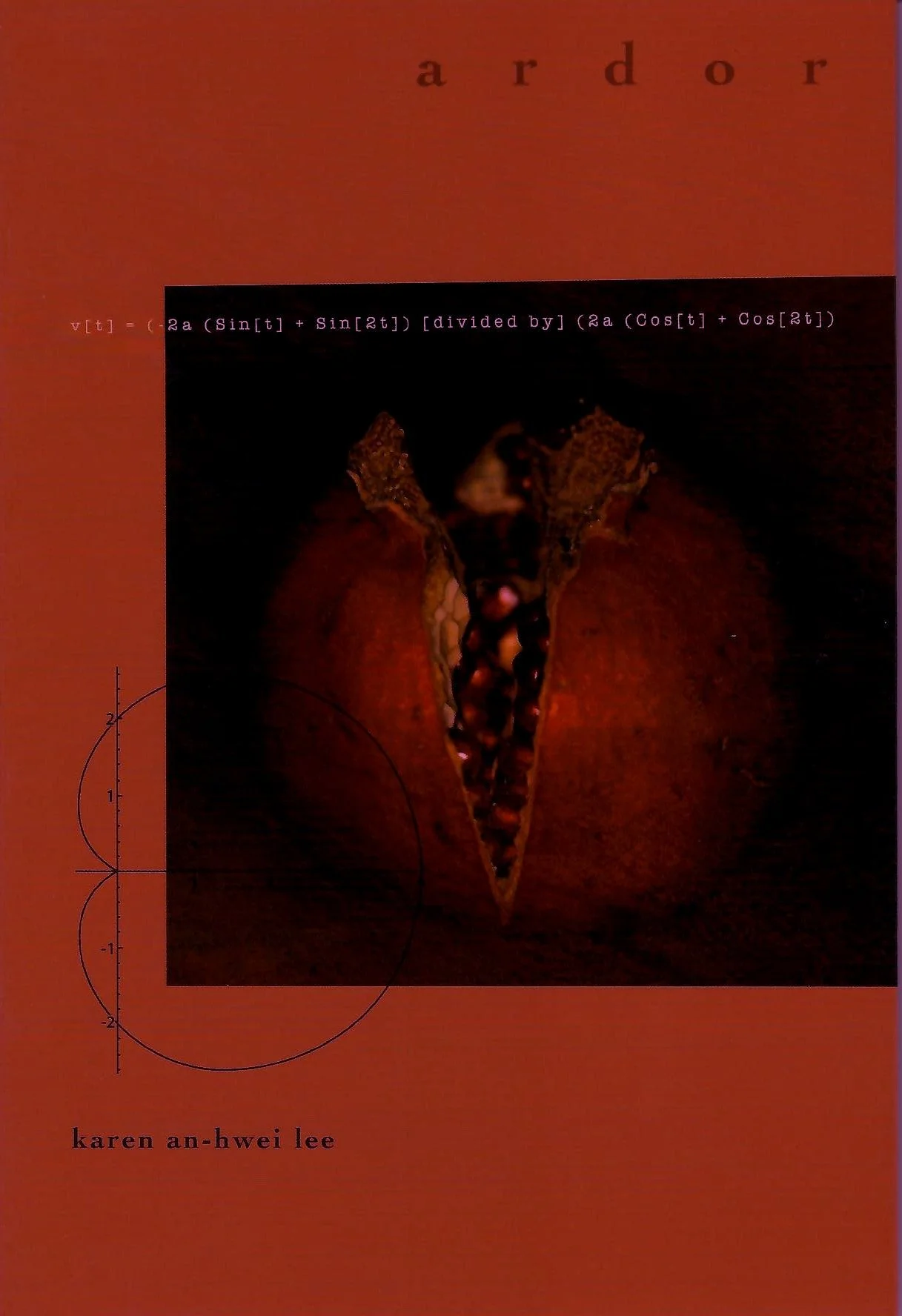About the Author
Karen An-hwei Lee is the author of Ardor (Tupelo Press, 2008) and In Medias Res (Sarabande Books, 2004), selected for the Kathryn A. Morton Prize by Heather McHugh and chosen for the Norma Farber First Book Award by Cole Swensen. A former writing resident at the MacDowell Colony of the Arts and the Millay Arts Colony and recipient of a National Endowment of the Arts grant, she currently chairs the English Department at a faith-based college in southern California, where she is also a novice harpist.
Advanced Praise
Barbara Jane Reyes received an Advance Reader’s Copy of Karen An-hwei Lee’s Ardor. Her analysis of the book is quite illuminating; Barbara Reyes is clearly a very attentive reader. Consider this couple of lines: “In Ardor, there is a recurrent I or a she who is a blind woman, and this is ironic, given the concern with ophthalmic texts; as well, Lee’s work is so full of such deep and luscious color: terra cottas, walnuts, cabernets, coral violets, blue raspberries, peach colored roses, azalea, and human heart as pomegranate or pomegranate as human heart. But we can also experience the beauty of these intensely, using our other senses.”
Format: Paperback
ISBN: 978-1-932195-69-9

